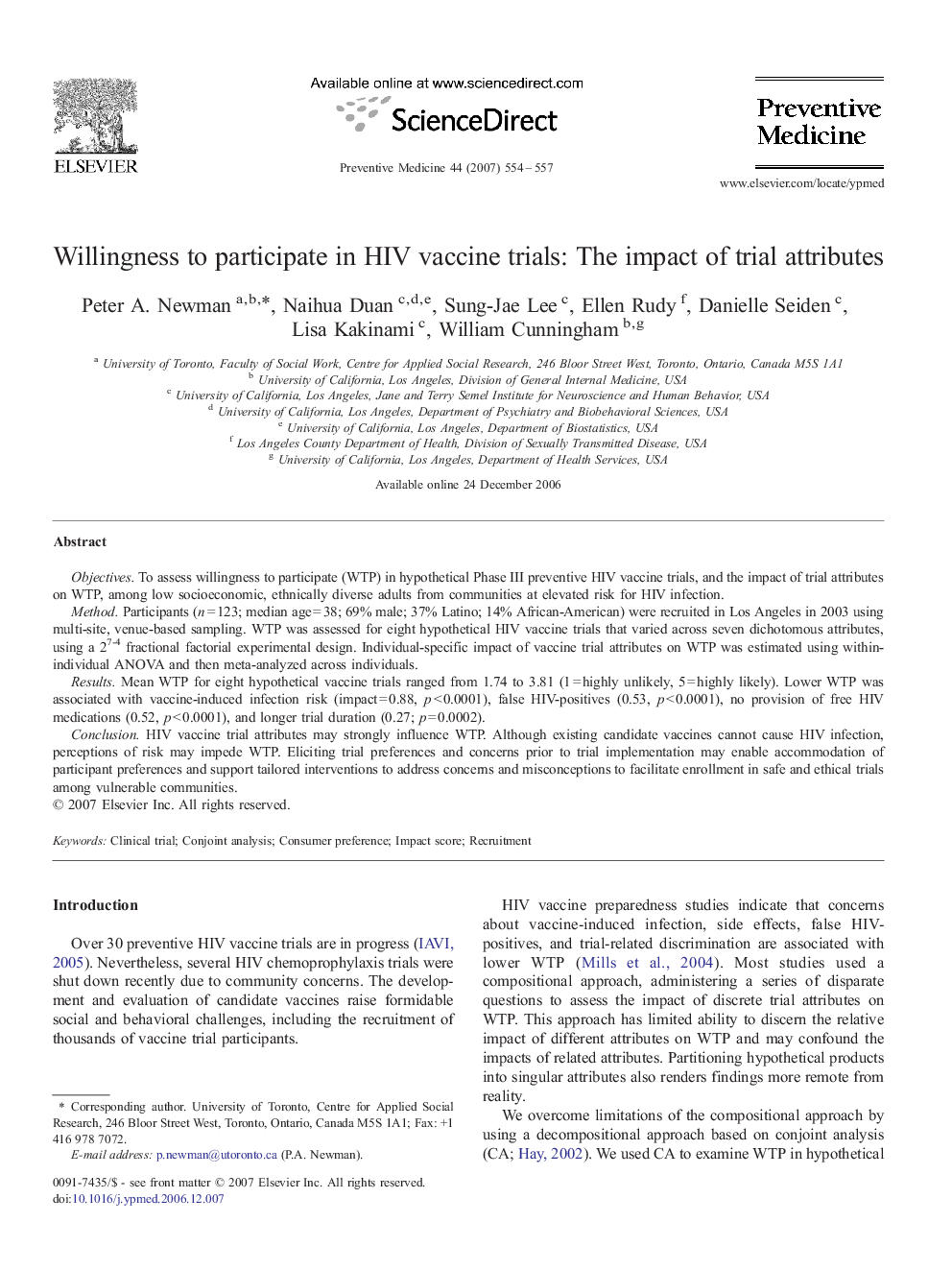| Article ID | Journal | Published Year | Pages | File Type |
|---|---|---|---|---|
| 3102094 | Preventive Medicine | 2007 | 4 Pages |
Objectives.To assess willingness to participate (WTP) in hypothetical Phase III preventive HIV vaccine trials, and the impact of trial attributes on WTP, among low socioeconomic, ethnically diverse adults from communities at elevated risk for HIV infection.Method.Participants (n = 123; median age = 38; 69% male; 37% Latino; 14% African-American) were recruited in Los Angeles in 2003 using multi-site, venue-based sampling. WTP was assessed for eight hypothetical HIV vaccine trials that varied across seven dichotomous attributes, using a 27-4 fractional factorial experimental design. Individual-specific impact of vaccine trial attributes on WTP was estimated using within-individual ANOVA and then meta-analyzed across individuals.Results.Mean WTP for eight hypothetical vaccine trials ranged from 1.74 to 3.81 (1 = highly unlikely, 5 = highly likely). Lower WTP was associated with vaccine-induced infection risk (impact = 0.88, p < 0.0001), false HIV-positives (0.53, p < 0.0001), no provision of free HIV medications (0.52, p < 0.0001), and longer trial duration (0.27; p = 0.0002).Conclusion.HIV vaccine trial attributes may strongly influence WTP. Although existing candidate vaccines cannot cause HIV infection, perceptions of risk may impede WTP. Eliciting trial preferences and concerns prior to trial implementation may enable accommodation of participant preferences and support tailored interventions to address concerns and misconceptions to facilitate enrollment in safe and ethical trials among vulnerable communities.
